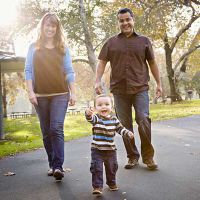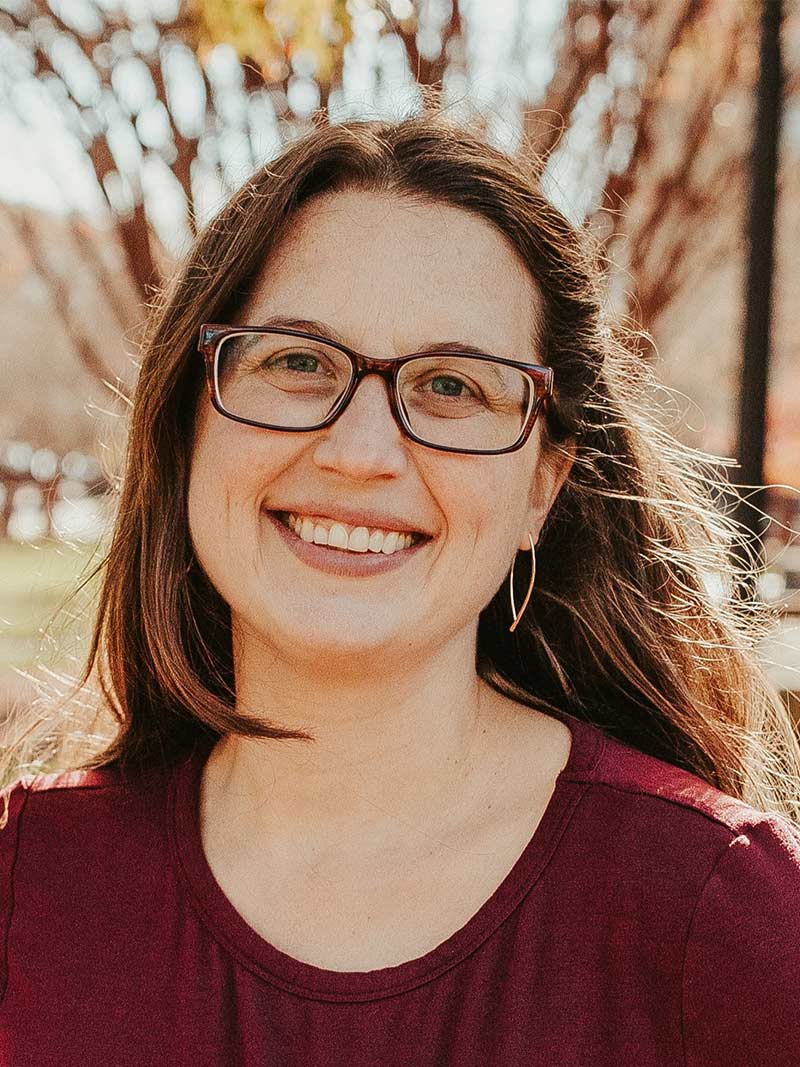
InsideTraCS — with Alicia Bilheimer
InsideTraCS: Get to know your extended research team through a series featuring conversations with faculty and staff.
Alicia Bilheimer, MPH
Alicia Bilheimer, MPH is the director of Engaged Science at NC TraCS. In her role, she oversees the Patient and Community Engagement in Research (PaCER) program and provides strategic direction to various other NC TraCS programs and services in their work related to engaged research. This includes outreach, partnership-building, and support for community and patient partners across North Carolina; guidance and technical assistance to researchers across UNC-Chapel Hill; collaborative work with other centers and institutes across campus; and research to advance the field of engaged science.
Marla Broadfoot, NC TraCS science writer, recently spoke with Bilheimer about what drives her to prioritize communities in research, engaging research teams and communities across the state, and barriers she's encountered in building partnerships between researchers and the community.
How did you become interested in community engagement? What drew you to the field?
I've always been interested in understanding how other people experience the world and the role community plays in shaping that experience. This curiosity eventually drew me to the field of cultural anthropology in undergraduate school and then to rural Honduras, where I supported local efforts to develop medical programming and lay the groundwork for a new health clinic. That work centered engagement and partnership with local community members and public health leaders, and inspired me to go on to receive my master's degree in health behavior at UNC's Gillings School of Global Public Health. Since then, I have worked in varying capacities on community-engaged research projects across North Carolina. These unique experiences working within and alongside communities over the last almost 20 years have continuously reaffirmed my passion for community engagement and inspire me to support researchers at UNC in prioritizing communities in their work.
What does "engaged science" mean to you, and how does it shape the work you do now?
Engagement has often been viewed as a "soft science" or as an optional component of clinical and translational research. The reality is that all research—no matter the therapeutic area, translational science tier, or patient population—can benefit from engagement and that engagement can be approached in a rigorous and methodological way. While community engagement is considered a promising practice, the "science of engagement" or "engaged science" is a burgeoning concept, and one that encourages us to more rigorously explore and determine standardized metrics for engagement, tested and generalizable methodologies, and empirical evidence to support the field.
How do you ensure that community voices are heard and valued in the research process?
Ensuring that community voices and perspectives are incorporated into the research that occurs at UNC is a primary goal of ours at NC TraCS. Over the past several years, I have worked alongside my colleagues within the Patient and Community Engagement in Research (PaCER) program, the ADAPT program, and the Qualitative Research Service at NC TraCS to develop a variety of services and resources that the UNC research community can leverage to more meaningfully involve communities in their work. Many researchers are eager to elicit the voices and perspectives of the communities their work affects but lack the knowledge and tools to do so effectively. And many community members are eager to partner with research teams and contribute their ideas but face hurdles in identifying research partners and navigating the university system.
Through our collaborations with UNC research teams and communities across the state, we support folks in identifying and forming partnerships, in choosing the engagement approach that is right for them, and in eliciting the perspectives they need to ensure that their research is well-informed. Whether it be holding a one-time Community Feedback Session with a group of patients to get input on a study's design, supporting a team throughout their development of a community advisory board, facilitating a discussion with our Latino Community Review Board to ensure that Spanish-language study materials are linguistically accurate and culturally relevant, or working with the NC TraCS Community and Patient Advisory Board to ensure that our own programming addresses their needs and priorities, we have been very intentional in creating accessible avenues between researchers and the community to ensure that community voice is heard and valued.
What are some common barriers you've encountered in building partnerships between researchers and the community, and how do you address them?
Historic mistrust of research is a common and very real barrier to a community's willingness to engage with academic research institutions. In my experience, this barrier is compounded by the complex bureaucracy inherent in working with these institutions. Engaging community and patient partners in research requires involving them in various institutionally-dictated processes and procedures that are often ill-suited for community and patient partners and have not been designed with their priorities and needs in mind. These issues are not unique to UNC and range from time-consuming IRB requirements for community-based partners to complex financial compensation mechanisms. These complicated processes further erode community trust in academic institutions and compromise the ability of our communities to engage in research in meaningful and efficient ways.
Over the past several years, our team has worked with other CTSAs to identify barriers and facilitators to the financial and administrative management of community-engaged research. Most recently, our efforts have focused on issues related to compensating community partners equitably and efficiently for their expertise and time. We have collaborated with researchers, community partners, and university administrative leadership at UNC to identify the leading barriers to community partner compensation and to develop processes and procedures that facilitate timelier and easier payment. While there is still much work to do, we are excited by the momentum this work has gained and by the support it has received from university leadership.
I read that you developed and implemented a training series highlighting "engagement as a spectrum." Can you explain that concept, and share some of the main take-home points of that training?
When most folks think of community engagement, they think of Community Based Participatory Research (or CBPR). CBPR is an approach that leverages community-academic partnership in all phases of a research project and encourages equal and full participation of community partners in every aspect of the research. While CBPR is certainly a gold standard and worth striving for, the reality is that not all research teams or community/patient partners have the capacity (e.g. time, resources, and interest) to engage so fully in a project. I think it's important to realize that engagement is not a "one size fits all" approach; it occurs along a spectrum and can take many different shapes and sizes that can be adapted to meet the specific needs of a research team and a community/patient partner.
Our Engagement in Research 101 training series—developed by the PaCER Program at NC TraCS, the Office of Community Outreach and Engagement at Lineberger, and our community partners—centers on this concept by outlining the basic principles of engagement, various engagement methodologies that range from low to high touch approaches, common myths and misconceptions about engagement in research, benefits and key considerations of engaging partners, and resources that can be leveraged by study teams to begin engaging partners in their research. Our hope is that this concept, and our trainings, will resonate with research teams and partners who approach engagement with varying levels of expertise, capacity, resources, and interest, and that they will enable all researchers to identify at least one tangible and feasible way of incorporating community and patient perspectives into their work.
Related
NC TraCS is the integrated hub of the NIH Clinical and Translational Science Awards (CTSA) Program at the University of North Carolina at Chapel Hill that combines the research strengths, resources, and opportunities of the UNC-Chapel Hill campus with partner institutions North Carolina State University in Raleigh and North Carolina Agricultural and Technical State University in Greensboro.




